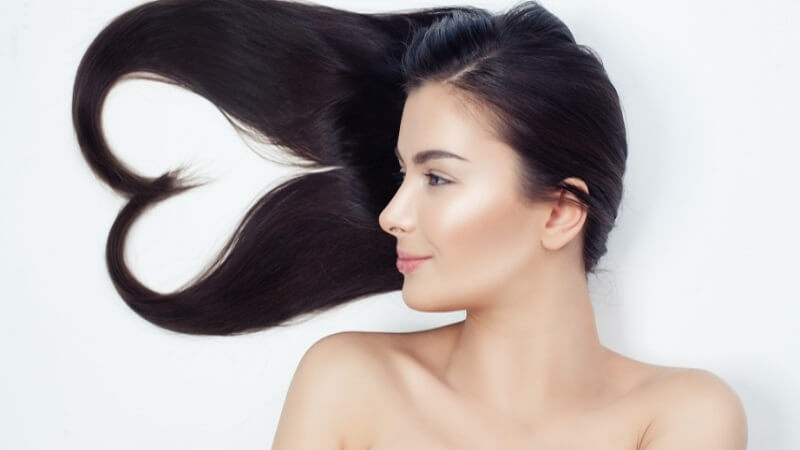Curious about hair growth supplements? Explore their effectiveness, backed by science, and uncover holistic approaches for healthier hair. Start your journey now!
The allure of hair growth supplements promises to revive lackluster locks and foster a cascade of luscious strands. But, do they really work? In the pursuit of Rapunzel-like tresses, many turn to these over-the-counter solutions, often seen as a silver bullet in the battle against thinning hair. However, as we’ll discuss in this in-depth exploration, the truth about the effectiveness of these supplements might not be as straightforward as their marketing suggests.
The Science Behind Hair Growth Supplements
Tales of hair growth supplements are often weaved with the golden threads of hope and promise of quick fixes to complex problems. Biotin, also known as vitamin B7, and other hair-boosting minerals like iron and selenium are the heroes of these stories.
Manufacturers tout clinical trials and success stories, yet the scientific narrative weaves a different tale. While some controlled studies show promising results in individuals with specific deficiencies, the evidence at large is sparse and contradictory, failing to provide robust support for widespread hair growth claims.
The Limited Evidence
One of the major issues in scientific research on hair growth is the difficulty in conducting controlled studies on human subjects. The hair growth cycle is complex and can vary widely from person to person, making it challenging to attribute changes specifically to a supplement.
Limited evidence only suggests that certain vitamins and minerals, when deficient, might contribute to hair loss. For the average individual with a balanced diet, the incremental benefits of supplements are questionable.
Balancing the Equation with Diet and Nutrition
While hair growth supplements hoist the banner of specific vitamins, the story is much broader and nuanced. A diet rich in essential nutrients like biotin, iron, and protein can positively influence hair health.
Biotin, for example, is involved in the synthesis of keratin, the protein that forms the structural foundation of hair. Still, the focus on individual elements can often overshadow the more significant impact of a varied, nutrient-rich diet in promoting overall wellness and, by extension, healthy hair growth.
The Many Strands of Hair Loss
For millions, the battle against hair loss is a deeply personal one, with multiple culprits contributing to the strands that slip through our fingers. Genetic factors, such as androgenetic alopecia, play a significant role, accounting for the lion’s share of male and female pattern baldness.
Medical conditions, stress, hormonal changes, and certain medications are just a few of the many factors that can lead to temporary or permanent hair loss.
Genetic Predispositions and Hormonal Tangles
The genetic path toward hair loss is well-worn and heavily researched. With androgenetic alopecia, hair follicles are genetically predisposed to be sensitive to the effects of dihydrotestosterone (DHT), a derivative of the male hormone testosterone, which can lead to miniaturization of the follicles and a shortened growth phase. Supplements often seem like an underdog’s chance against such formidable genetic foes.
Stress and the Hair-Hygiene Connection
High stress levels can tip the scales of the hair growth cycle, leading to an increase in shedding. This is often temporary and the hair loss is not permanent, but managing stress can be a crucial step in minimizing its effects on the hair.
Likewise, maintaining a healthy scalp environment through proper hygiene and regular cleansing can promote better hair growth. In this light, supplements might not be the hero but rather a sidekick to a broader approach to hair health.
Supplemental Strategies – Worth the Tinkle or Not?
Driven by the dream of achieving fairy-tale hair, many start their journey with a bottle of hair supplements. Yet, there are other routes to achieve, or at least enhance, the desired outcome alongside these supplements, without delving into the enigma of numerous hair-growth formulas. Vitamins revive – Hair supplements can be a key part of this holistic approach to longer and thicker hair.
Massage, Maintenance, and Medical Aids
Scalp massages can improve blood circulation to the hair follicles, potentially aiding in the delivery of essential nutrients and promoting growth. Additionally, good hygiene practices, appropriate hair care, and the judicious use of products specifically tailored for hair growth or to combat hair loss could be just as effective as any supplement.
For some, innovative medical treatments such as platelet-rich plasma therapy or low-level laser therapy could provide significant strides in the quest for a bountiful mane.
Safety in Numbers: Side Effects and Interactions
There is rarely a single story of success without its darker twin. Many supplements, while promoting growth, might also carry the risk of side effects, drug interactions, or complications. Understanding the potential risks and benefits is crucial, and consulting with a healthcare professional before starting any new supplement regimen is an important step in navigating the hair care landscape safely.
The Verdict on Vivifying Vitamins
The narrative painted by the hair growth supplement industry is one of possibility, potential, and of course, profit. However, as our exploration has shown, the story is far more complex. While these supplements might offer some benefits to individuals with specific deficiencies, they are not a magic wand for everyone’s hair-related woes.
In Conclusion
When discussing hair health, it’s crucial to explore methods beyond just supplements. Embracing a comprehensive strategy that includes diet, lifestyle, and specific treatments may prove more effective than relying on a single supplement.
Before diving into the world of hair growth supplements, thorough research, realistic expectations, and exploring a variety of options could lead to a more effective, scientifically supported route to achieving the lustrous hair we aspire to.
